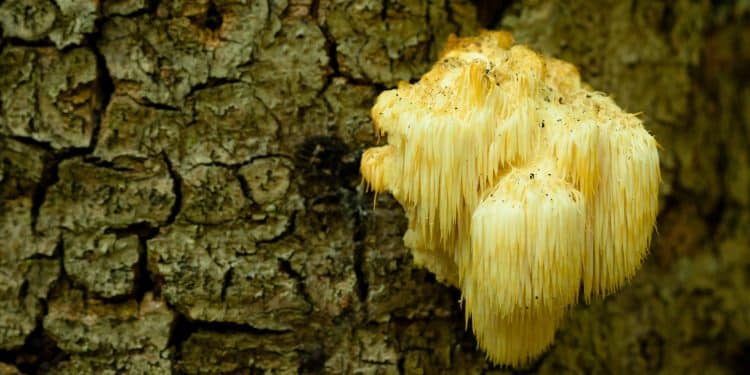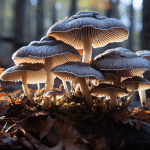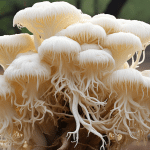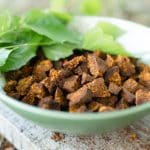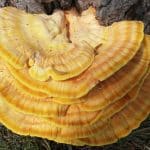This week, we are discussing Lions Mane Mushroom, or Hericium Erinaceus, and it is medical applications to Alzheimer’s disease (AD). Currently, no medications are available on the market to prevent, reverse, or stop the progression of AD. Although several clinical trials are showing promise, scientists are also looking at alternative therapies, such as lion’s mane mushroom, for Alzheimer’s disease. Lions’ Mane is a functional mushroom that is often consumed without negative side effects in countries such as Japan and China.
It is usually found growing beneath older broadleaf trees and contains Erinacine, a naturally occurring substance that has pharmacological effects on the central nervous system (CNS). There are two ways that most people consume lion’s mane, via the fruiting body and mycelium, which contains the erinacines. The erinacines are in a group of compounds called the cyathin diterpenoids, and are stimulators of neural growth factor (NGF). NGFs have a supporting role in the CNS, and are crucial for adequate protection of neurons that are alive and developing.
Is Lion’s Mane Mushroom Good for Alzheimer’s Disease?
Lion’s mane mushroom has been shown to improve the symptoms associated with Alzheimer’s disease. It is by no means a cure, but let’s look at the data.
Rats given erinacine A for 3 weeks increased the concentrations of noradrenaline and homovanillic acid in the hippocampus relative to controls, and showed evidence for increased levels of NGF in general, particularly in the dentate gyrus of the hippocampus. The increased levels of noradrenaline and homovanillic acid led to increased alertness and better recall of memories, as well as breakdown of fats and increased levels of blood glucose for promoting increased energy, suggesting erinaceus A contributes to neural and brain health in animal models. In addition, mycelium from lion’s mane mushroom that contains erinacine A, administered orally for 30 days to AD transgenic mice, results in decreased plaque load recruiting and activation relative to controls.
Other structures frequently impaired in AD, such as the hippocampus and locus coerulous, also showed improved function compared with those who were not given the lion’a mane mushroom. A double-blind clinical trial assessed the oral administration of lion’s mane mushroom fruiting body to older adults showed improvements for subjects with mild cognitive impairment, compared with age-matched controls.
Researchers measured the improvements using the revised Hasegawa Dementia Scale (HDS-R). The group taking lion’s mane increased its scores substantially over the 16-week treatment period, suggesting improvements over the group that did not take lion’s mane. However, when subjects stopped taking lion’s mane mushroom, their scores began to decline, reflecting scores similar to those that were not treated, suggesting a need to continue using. This definitely points to the importance of consistently taking lion’s mane mushroom over a prolonged period of time to experience the benefits.
Several different compounds found in lion’s mane seem to have cognitive protective benefits, such as reducing amyloid plaques, decreasing expression of insulin-degrading enzymes, increasing the release of NGF, and even managing neuropathic pain. While a few compounds in lion’s mane have been studied and are well are known, many compounds are still being studied, with a few yet to be discovered.
These discoveries, and those that are being made, will hopefully continue to lead the way to therapeutic strategies that can prevent, manage, and slow AD progress. In addition, previous studies and clinical trials have shown Lions Mane and its extracts are safe for human consumption in doses of 3-4 grams daily (although allergies have been noted, though rare). If you are interested in this research, we recommend discussing Lion’s Mane with your primary care doctor for potential cognitive enhancement.
You can find our favorite capsules, powders, and tincture’s on the following pages of our website and learn more about each individually:
List of Best Lion’s Mane Supplements
List of Best Lion’s Mane Powders
List of Best Lion’s Mane Tinctures
List of Best Lion’s Mane Gummies
Additional Resources:
Is Lion’s Mane Safe During Pregnancy?
Is Lion’s Mane Good for Brain Fog?
Updated 10/10/2022
